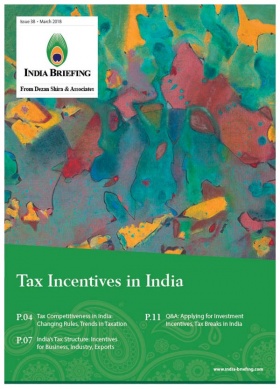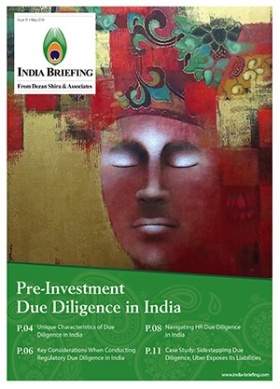FDI in India: Types of Hybrid Financial Instruments Permitted
Foreign Direct Investment (FDI) in India is governed by the Foreign Exchange Management Act (FEMA) and the federal government’s FDI policy. Foreign investments enter India through either the automatic route (where no prior governmental approval is required) or through the government approval route.
In recent years, foreign investors have attempted to invest in India using various types of hybrid instruments or hybrid securities, that is, financial instruments that combine both debt and equity characteristics.
This article serves as a brief guide for foreign investors on the scope of permissible FDI instruments and popular hybrid instruments used to make investments in India.
The equity, debt conundrum
As per existing regulations, only equity based instruments, that is, instruments vesting ownership rights on the holder are allowed under FDI.
Instruments of debt nature, that is, instruments vesting rights of a lender on the holder are treated as External Commercial Borrowings (ECB) and must be in compliance with ECB regulations.
However, certain hybrid instruments – those with both equity as well as debt characteristics – are permitted under the FDI regime, such as convertible notes.
While investment via equity shares is permissible under the FDI regime, preference shares, debentures, loans, and bonds are considered debt instruments as they guarantee assured returns to the investor.
Further, certain hybrid instruments, such as Optionally Convertible Preference Shares (OCPS) and Optionally Convertible Debentures (OCD) are also categorized as debt investments.
In 2016, the Supreme Court of India in the case of IDBI Trusteeship Services Limited v. Hubtown Ltd. adjudicated on the issue of multilayered investments through FDI. It held that as long as the instruments did not guarantee assured returns to the investor, they were to be treated as equity instruments, and hence, permissible under the FDI regime.
Below we discuss a few permissible hybrid instruments in India.
Compulsory Convertible Preference Shares (CCPS)
In case of CCPS, preference shares are issued, which entitles the holder to a fixed dividend on a priority basis that is mandatorily convertible into equity after a pre-determined period of time.
The pricing formula is determined upfront at the time of issuance, and must not be less than the fair value worked out as per existing regulations.
Compulsory Convertible Debentures (CCD)
CCDs are similar to CCPs, except that debentures are issued instead of preference shares. CCDs must also be fully and mandatorily converted into equity shares after a pre-determined period, in accordance with the same pricing norms as applicable to CCPS.
Convertible Notes (C-Notes)
Unlike CCPs and CCDs, C-Notes can only be issued by startup firms. A C-Note is issued as a debt instrument repayable at choice of the holder (determined at the time of issuance), or convertible into equity shares within five years, or upon the occurrence of a specified event, or as per terms of the instrument.
Investment in C-Notes must be made for an amount of at least US$38,600 (Rs 2.5 million) in a single tranche.
Investing in India: Scope for innovative hybrid instruments
FDI through hybrids are not limited to the above discussed financial instruments; any instrument that does not guarantee assured returns to the investor may also be permitted.
Further, multilayered structures are becoming increasingly popular, especially through the downstream investment route – where an Indian company owned and controlled by a foreign entity invests in another Indian company.
The trend of using hybrids, such as mezzanine financing is growing rapidly as more and more investors are beginning to understand the benefits and downside risk protections of hybrid instruments. Mezzanine financing gives the lender the rights to convert to an ownership or equity interest in the company in case of default, after venture capital companies and other senior lenders are paid.
Finally, the 2016 Supreme Court ruling in the case of IDBI Trusteeship Services Limited v. Hubtown Ltd. paves the way for innovation in hybrid instruments by giving greater latitude for multilayered FDI structures.
About Us
India Briefing is published by Asia Briefing, a subsidiary of Dezan Shira & Associates. We produce material for foreign investors throughout Eurasia, including ASEAN, China, Indonesia, Russia, the Silk Road, & Vietnam. For editorial matters please contact us here and for a complimentary subscription to our products, please click here.
Dezan Shira & Associates provide business intelligence, due diligence, legal, tax and advisory services throughout India and the Asian region. We maintain offices in Delhi and Mumbai and throughout China, South-East Asia, India, and Russia. For assistance with India investment issues or into Asia overall, please contact us at india@dezshira.com or visit us at www.dezshira.com.
- Previous Article Loi de 2017 sur les sociétés (modification) – Principaux changements pour la gouvernance d’entreprise en Inde
- Next Article Startup India Scheme: All You Need to Know










